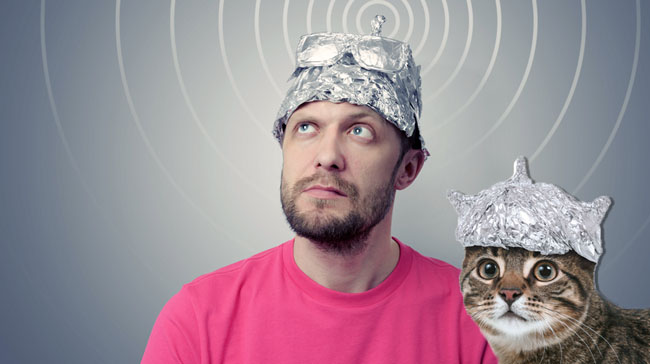
The Internet Age has truly given power to the people to have a voice on almost any topic. It’s a freedom of choice and instant gratification that hasn’t been seen before in history. The problem is that some of voices are also in people’s heads, saying some crazy things without a filter.
Conspiracy theories range from the harmless ones involving Jay Z and the Illuminati stranglehold over the music industry, the silly involving bloodthirsty lizard people holding power across the globe, and the somewhat sinister that would be almost too evil to be true (think 9/11 truthers). The majority are entertaining diversions, but some can take on a life of their own and usually feature someone claiming to have proof.
But what if that proof is completely fabricated? Turns out, as a new study reveals, people will probably still believe it. In a new study published over at PLOS One, several Italian scientists have utilized social media tendencies to study the spread of conspiracy theories and the type of information that people will share relative to those theories. You can slog through the entire report over there, but the gist involves a comparison between those who follow mainstream news and those on the fringe:
Through a thresholding algorithm we label polarized users on the two categories of pages identifying well shaped communities. In particular, we measure commenting activity of polarized users on the opposite category, finding that polarized users of conspiracy news are more focused on posts of their community and their attention is more oriented to diffuse conspiracy contents. On the other hand, polarized users of scientific news are less committed in the diffusion and more prone to comment on conspiracy pages. A possible explanation for such a behavior is that the former want to diffuse what is neglected by main stream thinking, whereas the latter aims at inhibiting the diffusion of conspiracy news and proliferation of narratives based on unsubstantiated claims.
Finally, we test how polarized users of both categories responded to the inoculation of 4,709 false claims produced by a parodistic page, finding polarized users of conspiracy pages to be the most active
Among the false claims were those saying that chemtrails were full of Viagra, and mosquito poison used in parks is harmful to humans, but some, like Rebecca Watson, didn’t think these were crazy enough. And she’s right.
Watson notes in her video below that many conspiracy theorist can usually go above and beyond to find a theory that they can really latch onto, like the lizard people I talked about above. It’s the kind of junk that filled the entirety of a film like Room 237 or can be heard on any broadcast of the Alex Jones show. There is always going to be a crazier theory. That’s what makes this study interesting and also highlights that people should be a little more selective on what they believe in their Facebook feed.
(Via Rebecca Watson / PLOS One / Daily Dot)
